Community leaders, academics, activists and legislators met last week in the Jalisco State Congress to challenge Mexico’s proposed reform to its National Water Law, warning that it would worsen rather than dismantle rampant inequality in the management of the nation’s water.
The Open Citizen Parliament in Jalisco brought together farmers, Indigenous representatives, scientists and lawyers, urban collectives and environmental groups under the banner “One Water, One Law.” Their aim: to craft citizen proposals for a new General Water Law that guarantees the constitutional right to water and curbs corporate control.
Para leer este artículo en Español hacer click AQUÍ
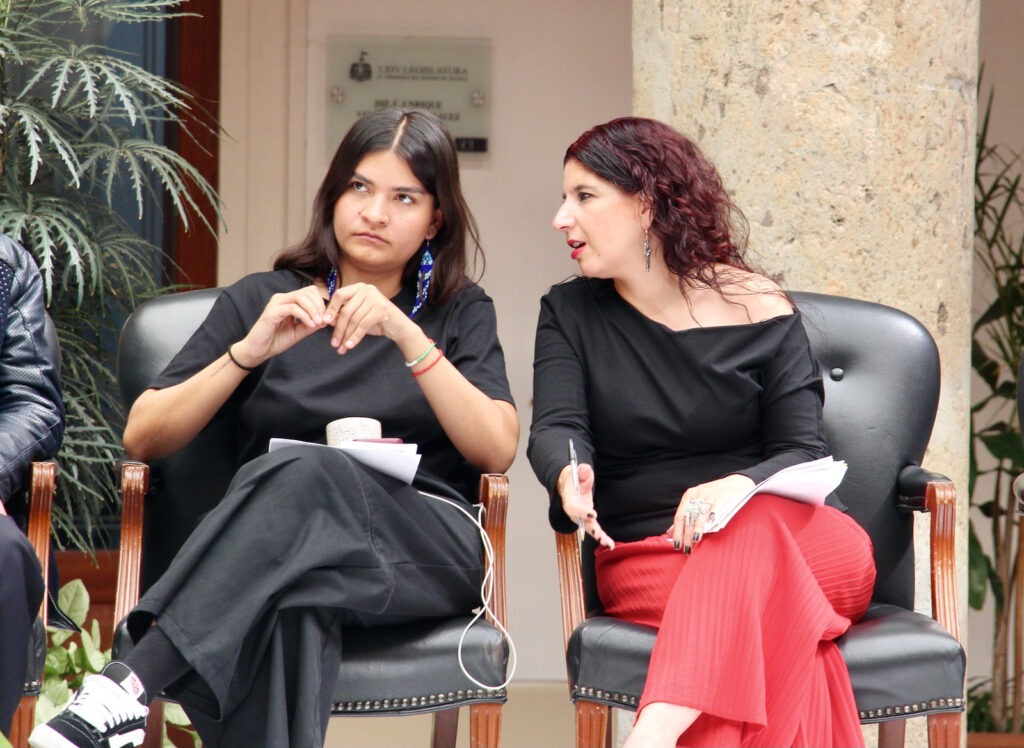
“We must move toward a new law that eliminates the privatizing model — one that recognizes water as fundamental to life, as a right, not a commodity,” said María González Valencia, director of the Mexican Institute for Community Development (IMDEC) and coordinator of the Jalisco Water Defense Movement, as she opened the forum before a packed hall.
González explained that the event was both a citizen and legislative exercise, with panels analyzing competing bills and working groups drafting Jalisco-specific resolutions to be delivered to the Water Resources Commission in the Chamber of Deputies for inclusion in the national debate.
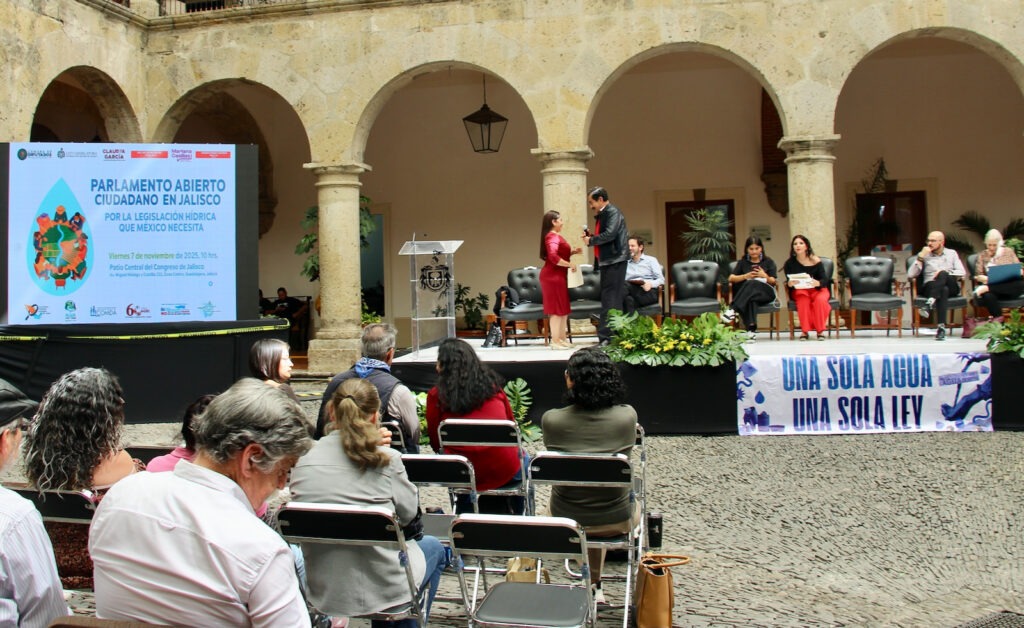
A Popular Forum in the Seat of Power
Federal Deputy Mariana Casillas Guerrero called it a decisive moment.
“We must ask to what extent this reform truly breaks with the extractivist model of concessions and privileges for a few,” she said, noting that the federal bill still allows decades-long permits for mining, agribusiness and real estate projects that “loot nature and the peoples.”
Water, she added, should be recognized “not as a commodity, but as the memory of the peoples — the material foundation of social justice.”
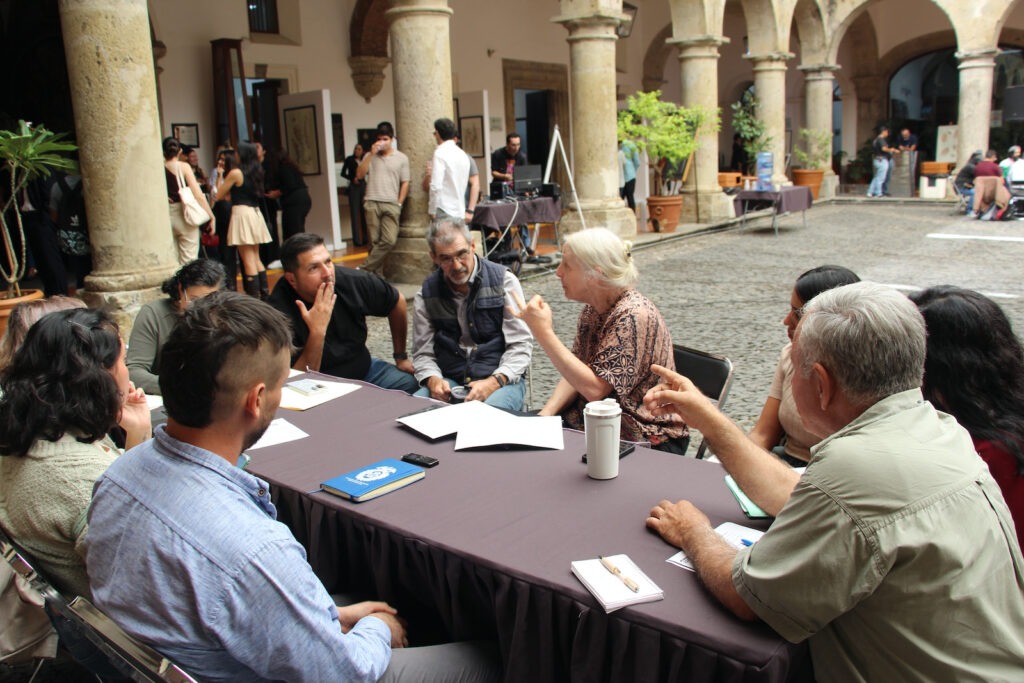
Legal Experts: Two Laws, One Contradiction
Rodrigo Gutiérrez Rivas, a constitutional scholar at UNAM’s Institute for Legal Research, reminded legislators that since Mexico recognized the human right to water in 2012, Congress has been constitutionally required to pass a single General Water Law. The current proposal from the National Water Commission (CONAGUA), he said, would split regulation into two laws — a move he called unconstitutional and one that would perpetuate inequities.
Legislative adviser Miguel Ángel Montoya added that the 2012 reform gave Congress 360 days to act, a mandate “still ignored 13 years later.”
Veteran activist Elena Burns, of Agua para Tod@s, Agua para la Vida, said the reform “maintains the same mechanisms that enable overexploitation and pollution.”
“The CONAGUA initiative violates the Constitution,” she said. “It’s not enough to declare the right; the law must guarantee it through real participation at every level. It keeps intact the old concession system that must be changed.”
Citizen Proposals Take Shape
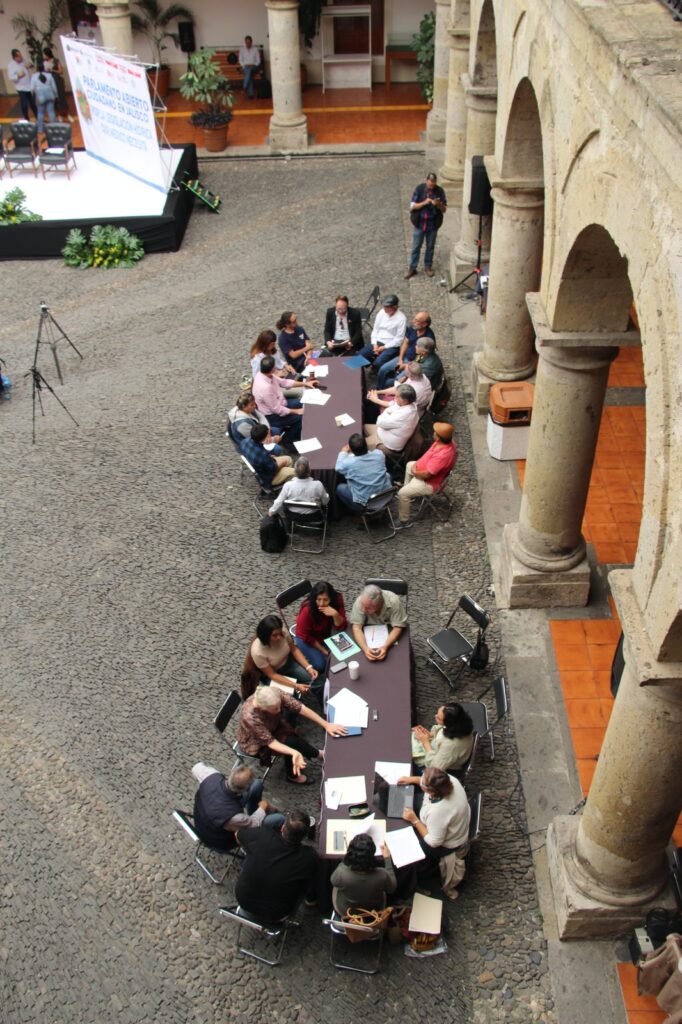
In a breakout session on Water Hoarding, participants examined avocado and berry plantations operating “without concessions, depleting aquifers and displacing small farmers.” They called for public disclosure of concession-holders who have failed to pay water-use fees and for future concessions to be conditioned on sustainable use.
Other proposals included:
– Transparency in payments and tariffs for large users;
– Community-based monitoring networks funded publicly;
– Sanctions for officials who enable illegal discharges;
– Mandatory rain-harvesting systems in public buildings; and
– Long-term protection of community wells and Indigenous water rights.
Participants also urged criminal action against CONAGUA for failing to sanction delinquent permit-holders and demanded free legal aid for communities defending their water rights.
Legislative Commitments and Closing Call
When the floor returned to lawmakers, federal deputies Claudia García Hernández and Mariana Casillas Guerrero pledged to take the Parliament’s resolutions to Mexico’s Chamber of Deputies and press for their consideration alongside the CONAGUA bill.
Jalisco’s state deputies likewise committed to promote a formal resolution in the local Congress urging federal legislators to incorporate the Jalisco Water Parliament’s findings into the national debate.
State Deputy José Luis Sánchez González closed with a call for unity, vowing to carry the citizen proposals to national forums to advocate for their adoption.
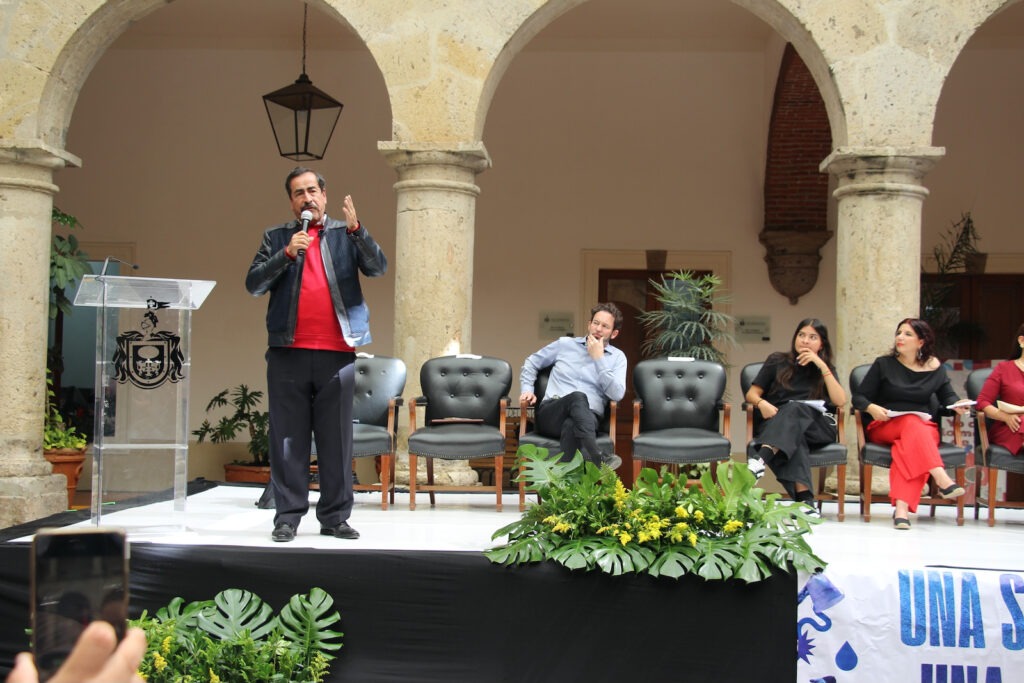
“To defend water is to defend life itself — and no law can be just if water becomes a commodity,” he told the audience emphatically. “If the State fails to guarantee the right to water, it fails in its very purpose.”
Finally, María González Valencia reminded participants that the process itself was an act of resistance.
“We’ve said it here and we’ll keep saying it: we want one water, one law — a law that recognizes water as the right of the peoples and the foundation of life itself.”
For more information and updates, follow IMDEC (Mexican Institute for Community Development) and Agua para Tod@s, Agua para la Vida on social media.
This story was originally published in The Guadalajara Reporter and is reposted here with permission
- ‘Planting Is a Right’: Guadalajara’s Urban Ag Rebels Rally Against Proposed Regulations — Again - January 21, 2026
- The women who kept a Mexican pueblo above water — and stopped a megadam - January 15, 2026
- Reading the Earth: How Mexican scientists are using nature to find the disappeared - January 7, 2026
CONAGUA Elena Burns Jalisco Miguel Ángel Montoya Rodrigo Gutiérrez Rivas